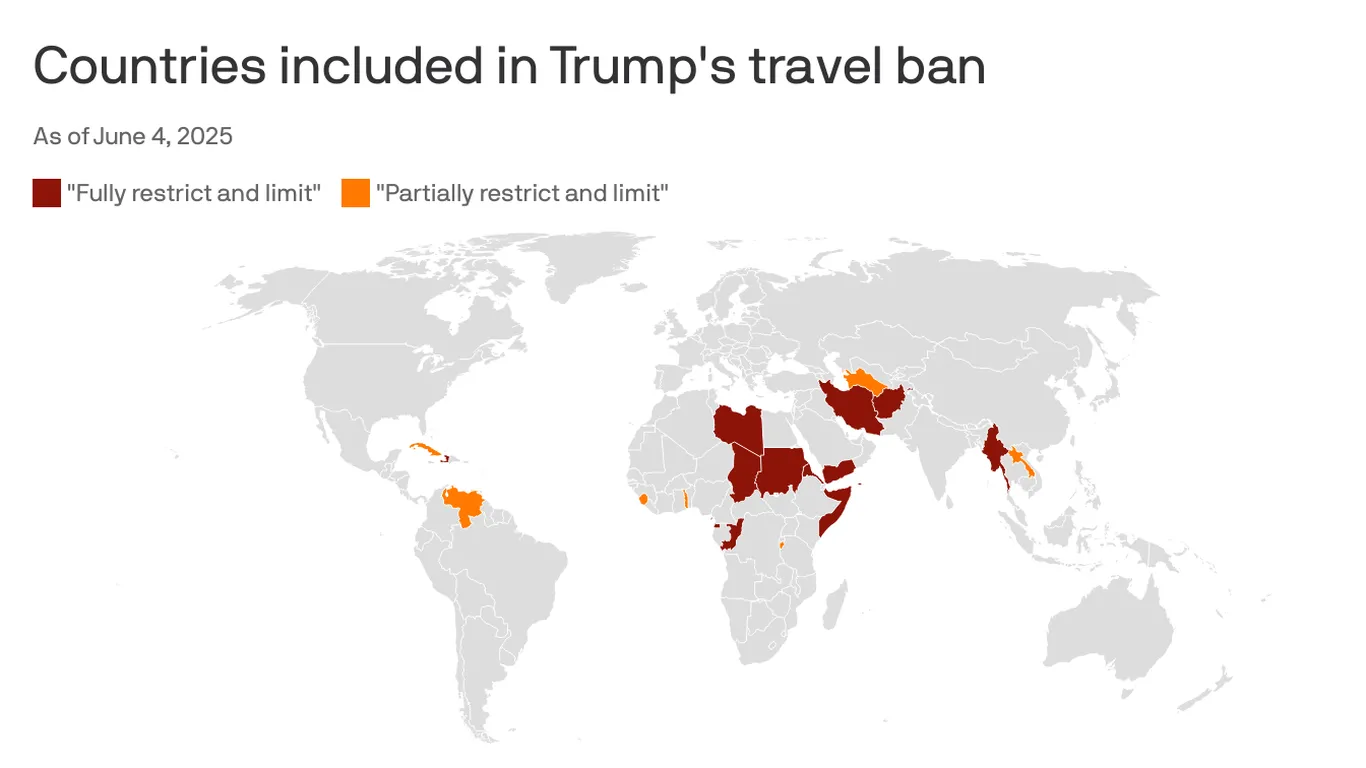Starting Monday, June 9, the U.S. government will enforce a new immigration policy that fully bans entry for citizens from 12 countries and imposes partial restrictions for travelers from seven additional nations. According to the White House, the measure is intended to address national security concerns and is based on the reported lack of adequate screening and vetting procedures in the listed countries.
The countries subject to a full travel ban are: Afghanistan, Myanmar (Burma), Chad, Republic of the Congo, Equatorial Guinea, Eritrea, Haiti, Iran, Libya, Somalia, Sudan, and Yemen.
Partial restrictions apply to nationals from Burundi, Cuba, Laos, Sierra Leone, Togo, Turkmenistan, and Venezuela.
The policy was announced through an official statement and later confirmed by President Donald Trump in a video message posted on social media. During a conversation with reporters, Trump emphasized the administration’s intention to reinforce border security procedures.
The action is part of an effort to reinstate a travel policy originally introduced during Trump’s first term. Following an executive order signed earlier this week, various federal agencies were directed to identify countries with limited vetting capabilities that could justify full or partial suspensions of entry.
Concerns have been raised about the implications for individuals with pending visa applications, including those who have previously worked with or supported the U.S. government. Nevertheless, the administration has stated that limited exceptions may apply under specific visa programs.







